Mathematics
- Degree Type Bachelor of ArtsBachelor of Science
- Department Mathematics
- Academic Division The College
- Offerings Major Minor


Mathematics welcomes students with a wide range of interests. Mathematics pairs well with many other fields, and students experience the subject as a creative endeavor as well as a useful tool in modeling and exploring physical and social processes.
Mathematics
In the Mathematics Department at W&L, dedicated professors help all math students develop the perseverance they need to move beyond numbers and formulas to the underlying ideas they express. Students are taught to identify, describe and understand patterns, and to recognize, admit and correct their mistakes.
During their four years at W&L, mathematics majors and minors gain a mastery of fundamental areas of mathematics including single and multi-variable calculus, linear algebra, abstract algebra and real analysis. In addition, students complete a number of electives.
The Math Center
Math Department faculty want all students to succeed in their mathematics classes. You can always see your professor during office hours. In addition, the Math Center is open five evenings each week; this is a place where students can seek help on material in 100-level courses, with no appointment necessary.
“The Math Center is staffed by some of our best math majors who can really help these students,” said Professor Gregory Dresden. “But they won’t just present the student with the solution to a math problem. They’ll have students work out the problem on their own and guide them toward finding the right answer.”
Opportunities
Collaborative research with faculty: Every year, we have a number of students conducting research with mathematics faculty at W&L during the academic year or during the summer. Students may earn one to three credits for this work, and the Summer Research Scholars program provides funding for summer research. Some research students give talks at regional mathematics conferences or publish articles in mathematics journals. Some mathematics majors extend their research project and write an honors thesis in mathematics.
Study abroad: Mathematics majors have completed some mathematics coursework while studying abroad at the London School of Economics, the University of St. Andrews and Oxford University. In addition, there are study abroad programs in mathematics in Budapest and Moscow.
Outcomes
Here are a few careers that use mathematics: actuarial mathematics, data science, applied mathematics, biomathematics, biostatistics, computer science, financial mathematics, economics law, medicine, music, technical writing, operations research, public heath and epidemiology, public policy research mathematics, statistics and education
In addition to mathematics and related fields, recent mathematics majors at W&L have pursued graduate studies in analytics, operations research, business, economics, computer science, engineering, law and medicine.
News
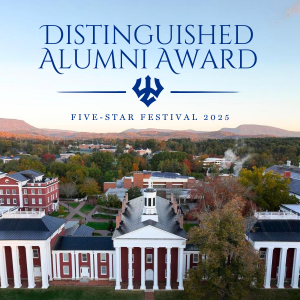
These alumni exemplify leadership, service and professional excellence and will be honored during Five-Star Festival, Oct. 3–5, 2025.
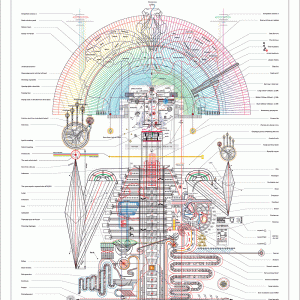
The solo exhibition will run from Sept. 4 through Oct. 17 and kicks off the gallery’s fall season.
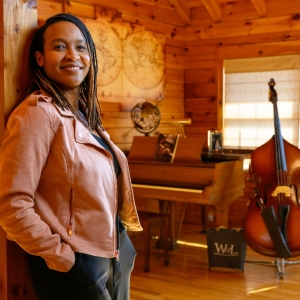
Assistant professor of mathematics Sybil Prince Nelson ’01 finds meaning in all her endeavors.

Adhip Adhikari ’27 constructed a library at a secondary school in Kathmandu, Nepal, with the help of the ÄûÃÊÊÓƵ community.

The professor of mathematics was recognized for the exploration of infinite geometric patterns.

The professor of mathematics authored a paper and produced illustrations that were used on the cover of the popular journal.
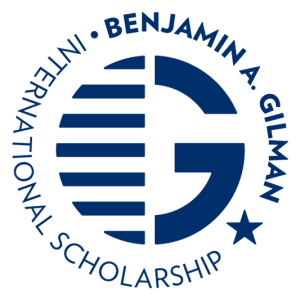
This round of recipients marks a record-setting Gilman Scholar cohort for W&L.

Patel plans to expand the reach of Wings of Women, the community-driven initiative she founded in her home country of India.
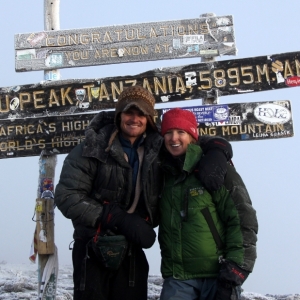
Brandon Chalk ’00 followed his love for the outdoors all around the world, summiting the highest peaks on each of the seven continents with his wife, Kristine Chalk.
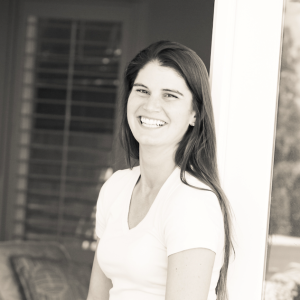
The vice president at Firebird Artist Management was honored in the multisector category.

Four sets of twins on W&L varsity sports teams share what it’s like competing side-by-side with their siblings.
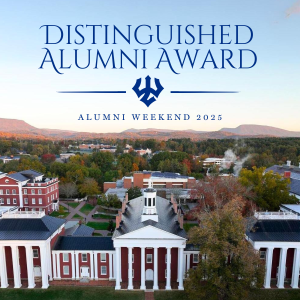
This year’s honorees will be recognized during Alumni Weekend from May 1-4.
Sample Courses
At W&L, we believe education and experience go hand-in-hand. You’ll be encouraged to dive in, explore and discover connections that will broaden your perspective.
- Mathematics of Politics
- Bridges to Advanced Math
- Financial & Actuarial Mathematics
- Mathematics of Puzzles & Games
- Probability
- Topics in Geometry & Topology
MATH 100
Mathematics of Politics
In this course, we focus on mathematical reasoning about politics. What makes this course mathematical is not numbers or formulas but rather reasoning. Students must think about what is possible and what is impossible. Is there a good way to determine winners of elections? Is there a good way to apportion congressional seats? Is there a good way to make decisions in situations of conflict and uncertainty? We begin by carefully and precisely formulating environments in which we can discuss approaches to elections, apportionment and rational decision-making. We contemplate criteria that capture the notions of goodness within these environments, and see importance of precise definitions and consistent rules of logic in mathematical reasoning. Throughout the course, we pay attention to the way that technical words are defined so that the precise technical meaning is not confused with the ordinary meaning that the word carries in natural language.
MATH 201
Bridges to Advanced Math
The course explores various important mathematical constructions and ideas, with a particular emphasis on mathematical inquiry and reasoning. Topics include: sets, functions, equivalence relations, modular arithmetic, and basic properties of the integers, real numbers and complex numbers.
MATH 270
Financial & Actuarial Mathematics
An introduction to some of the fundamental topics in financial and actuarial mathematics. Possible topics include calculating present and accumulated values for various streams of cash and the theoretical basis of corporate finance and financial models and the application of those models to insurance and other financial risks.
MATH 369
Mathematics of Puzzles & Games
The application of mathematics to puzzles and games. A brief survey on the designs of tournaments. The puzzles and games include but are not limited to the Rubik’s Cube, poker, blackjack and peg solitaire.
MATH 309
Probability
Probability, probability density and distribution functions, mathematical expectation, discrete and continuous random variables, and moment generating functions.
MATH 342-343
Topics in Geometry & Topology
Topics vary but can include knot theory, topology and geometry of surfaces, differential geometry, Riemann surfaces, 3-manifolds, tilings, geometric probability, geometry of spacetime, finite geometry, computational geometry, differential topology and projective geometry.
Meet the Faculty
At W&L, students enjoy small classes and close relationships with professors who educate and nurture.


Alan McRae
Department Head, Mathematics; Professor of Mathematics
- P: 540-458-8810
- E: mcraea@wlu.edu
McRae teaches mathematics courses on calculus, derivatives and number theory. He also helped found the Math Center, which helps any student in entry-level calculus.




Kevin Beanland
Associate Dean of the College for Administration and Professor of Mathematics
Beanland teaches a variety of mathematics courses but specializes in mathematical analysis. His primary research area is Banach space theory, on which he has published several scholarly papers.


James Broda
Assistant Professor of Mathematics
- P: 540-458-8805
- E: jbroda@wlu.edu
Broda’s research interests include modelling of carbon content of ecosystems, population dynamics, catastrophes, stochastic processes and dynamical systems. His most recent scholarship has focused on employing statistical methods to study semi-stochastic processes.


Michael Bush
Professor of Mathematics
- P: 540-458-8801
- E: bushm@wlu.edu
Professor Bush teaches a wide range of mathematics courses. He particularly enjoys teaching courses and mentoring undergraduate research projects in algebra, number theory and discrete mathematics. He also has an interest in recreational and contest mathematics and often helps students prepare for the annual William Lowell Putnam Mathematical Competition.




Cory Colbert
Associate Professor of Mathematics
- P: 540-458-8655
- E: ccolbert@wlu.edu
Colbert teaches courses on calculus, proof-writing, abstract algebra and commutative ring theory. His research focuses on understanding which geometric shapes correspond to certain algebraic structures.


Elizabeth Denne
Professor of Mathematics
On Sabbatical 2025-2026
- P: 540-458-8064
- E: dennee@wlu.edu
Denne teaches courses on geometry, topology, real analysis, linear algebra and calculus. Her research uses topological knot invariants to answer questions about the geometry of knots.


Gregory Dresden
Professor of Mathematics
- P: 540-458-8806
- E: dresdeng@wlu.edu
Dresden teaches courses in calculus, abstract algebra, number theory, actuarial science and statistics. His research covers number theory and algebra, and he often writes papers with students.


Carrie Finch-Smith
Professor of Mathematics
- P: 540-458-8209
- E: finchc@wlu.edu
Finch-Smith teaches many courses including calculus, the art of mathematics, and algebra. Her research is in number theory, and she often works with students on research projects in a variety of topics.




Sybil Prince Nelson
Assistant Professor of Mathematics
Prince Nelson ’01 teaches courses in calculus, probability and statistics. Her research is focused on creating tree-based models for classifying and predicting outcomes from complex data.


Chong Wang
Assistant Professor of Mathematics
- P: 540-458-8099
- E: cwang@wlu.edu
Wang’s research interests include calculus of variations, mathematical modeling, scientific computing, partial differential equations, numerical analysis and high-performance computing.















